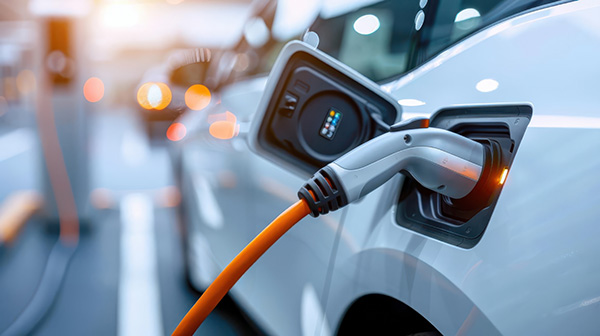The intersection of electric vehicles, recycling and waste management.
By Ray Hatch, President & CEO of Quest Resource Management Group
The recent decision made by the Environmental Protection Agency (EPA) to provide nearly $900 million in rebates for clean, electric school buses marks a significant milestone in our efforts to embrace more environmentally friendly transportation solutions. This substantial financial allocation serves to not only incentivize the widespread adoption of electric school buses but also sets the stage for the implementation of more sustainable transportation options.
As electric vehicles (EVs) continue to revolutionize global sustainability efforts, it is crucial to concurrently explore additional innovations and strategies to address any potential unintended waste management challenges that may arise alongside the shift towards these new technologies. The rising popularity of electric vehicles has many benefits, including reducing greenhouse gas emissions and dependence on fossil fuels. However, it is essential to ensure that the entire lifecycle of these vehicles and their components is managed in an environmentally responsible manner.
One of the significant waste management challenges associated with electric vehicles is the handling of lithium-ion batteries. With the rapid surge in electric vehicle usage, the efficient handling of lithium-ion batteries has transitioned from a concern to a pressing issue. As the number of EVs on the road continues to soar, the volume of spent lithium-ion batteries that require immediate and proper recycling and disposal is also increasing at an alarming rate.
Here are the challenges that demand our attention when it comes to EVs and their batteries:

Fortunately, there are waste management and recycling service companies, research institutions and various other organizations that are working to develop more efficient and sustainable methods for recovering and reusing valuable materials from spent batteries. These advancements not only help mitigate environmental impact but also contribute to creating a more circular and sustainable economy.
Here are some strategies to address the challenges and work towards a more sustainable future:
It is important to acknowledge the deep connection between the advancement of electric vehicles and various facets of sustainability, including but not limited to recycling and waste management. The commitment shown by the EPA towards funding and promoting the usage of clean, electric buses serves as just one aspect of the wide-reaching influence of shifting towards electric vehicles. This underscores the critical significance of implementing responsible resource management practices and encourages further exploration of innovative solutions to address waste management challenges associated with electric vehicles.
About Quest Resource Management Group
Quest is a national provider of waste and recycling services that enable larger businesses to excel in achieving their environmental and sustainability goals and responsibilities. Quest delivers focused expertise across multiple industry sectors to build single-source, client-specific solutions that generate quantifiable business and sustainability results. Addressing a wide variety of waste streams and recyclables, Quest provides information and data that tracks and reports the environmental results of Quest’s services, gives actionable data to improve business operations and enables Quest’s clients to excel in their business and sustainability responsibilities.

About Ray Hatch, CEO + President
Ray Hatch has served as President and Chief Executive Officer of Quest Resource Management Group (NASDAQ: QRHC) since February 2016. A senior executive with in-depth experience building profitable businesses and orchestrating transformational growth, Ray brings over 25 years of experience in both the waste management and food services industries. He has managed businesses and/or business units with as many as 600+ employees and more than one billion dollars in revenue. Previously, Ray served as President of Merchants Market Group, an international foodservice distribution company. Ray also served in various executive roles with Oakleaf Waste Management, a provider of waste outsourcing that was acquired by Waste Management.
Scott Ellyson, CEO of East West Manufacturing, brings decades of global manufacturing and supply chain leadership to the conversation. In this episode, he shares practical insights on scaling operations, navigating complexity, and building resilient manufacturing networks in an increasingly connected world.